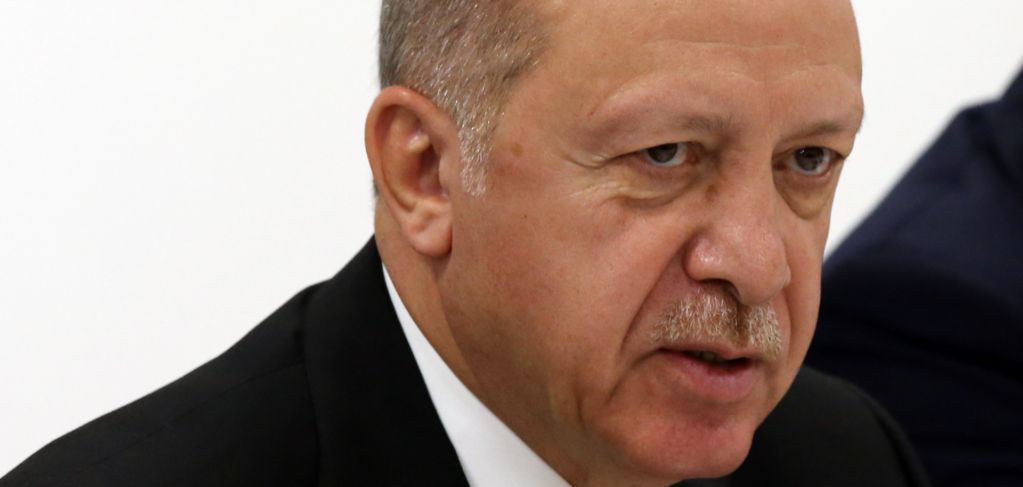December 26, 2012 by Ataturk Society UK
Washington’s misplaced support for Turkey’s Erdogan
TAOS, New Mexico, December 23, 2012 – For over a decade now, US administrations have hailed Turkey’s Islamist AKP government led by Prime Minister Erdogan as a model of democracy and “moderate” Islam. In the wake of the Arab Spring, Prime Minister Erdogan traveled to Libya, Egypt and Tunisia as an extension of American “soft power” to encourage fledgling governments to adopt the Turkish version of Islamic democracy.
The problem here is that Washington is again allowing pragmatism to trump principle. The US is apparently so eager to find alternative vehicles of political expression to combat radical Islam in the Middle East that it is willing to gloss over the gross violations of basic human rights being perpetrated in its chosen “model” for the world of Islam.
Return of the Ottomans?
It is no secret that Erdogan and his chief advisors are ardent admirers of the Ottoman state, the vast empire ruled by the Turks for 600 years. This open admiration coupled with the government’s foreign policy strategies indicate that Erdogan’s government is seeking to regain a similar type of influence in the region. The question is which Ottoman Sultan Erdogan is trying to emulate.
Sultan Beyazid mi?
In 1485 Sultan Beyazid II issued a decree banning the printing press in the Ottoman Empire. It would be two and half centuries (1727) before printing of Arabic letters would be permitted.
In its 2012 report, the watchdog group Reporters Without Borders, which is based in France, confirms what press freedom activists and international observers have been shouting from the rooftops for years now. The secular, constitutional, democratic, Republic of Turkey, a candidate for EU membership and the only Muslim member of the North Atlantic Treaty Organization (NATO) has been waging a campaign of terror against freedom of the press, jailing more journalists for their professional activities than any other country in the world.
With 72 journalists currently in prison pending trial, at least 46 of which RSF has determined are being incarcerated for their journalistic work, Turkey has more than twice as many reporters in prison as China (30), followed by Eritrea (28), Iran (26) and Syria (21).
RSF called Turkey, “…the world’s biggest prison for journalists, a sad paradox for a country that portrays itself as a regional democratic model.”
Although their tally differs slightly, The Committee to Protect Journalists, based in New York, also puts Turkey at the top of its list of offenders. Turkish journalist Mehmet Ali Birand is quoted as saying that the Turkish government “does not differentiate between these two major things: freedom of expression and terrorism.”
Erdogan’s government claims that these journalists are being held for serious crimes, namely membership in armed terrorist organizations and that their detentions have nothing to do with journalism. But, the facts tell a different story. The AKP may not have banned the press, but it has ruthlessly suppressed dissent and intimidated its political opponents, especially those voicing their opinions in the public arena by sending them to prison and leaving them there to rot.
Sultan Abdülhamid mi?
In 1880, Sultan Abdülhamid responded positively to attempts by Sheikh Ubeydullah to win some degree of autonomy for the Kurds under Turkish protection. It looked like the Turks and Kurds might have found a federal solution, but it was short-lived and Kurdish aspirations were dashed when the Ottomans reasserted supreme control.
This is not unlike to Erdogan’s much touted Kurdish Initiative, which was supposed to bury the hatchet between the two peoples. When the Kurds did not respond to Turkish magnanimity as he had hoped, he followed in the footsteps of Sultan Abdülhamid wearing boots of iron.
The European Association of Lawyers for Democracy and World Human Rights (ELDH) reports that around 8,000 politicians, trade-unionists, journalists, artists, students, human rights activists and their lawyers have been the victims of mass arrests in Turkey since 2009. Many of these arrests have been part of the Turkish government’s operation against the KCK (Union of Communities in Kurdistan) under the Anti-Terrorism Law of 1991.
Those arrested include Mr. Ragip Zarakolu, a publisher nominated for the Nobel Prize by members of the Swedish Parliament and a founding member of the Turkish Human Rights Association (IHD); Prof. Büsra Ersanlı, a constitutional law expert, and Ayşe Berktay, a respected translator, researcher and global peace and justice activist, who was one of the main organizers of the World Tribunal on Iraq in Istanbul in 2005. A total of 205 individuals have been indicted in the case and the next hearing is scheduled for February 4, 2013.
Thirty-six Turkish and Kurdish lawyers were arrested in raids conducted across the country in November 2011. IHD Vice President Muharrem Erbey is still in prison awaiting trial and was not even released to receive the Ludovic-Trarieux Prize from the German Minister of Justice in November 2012.
In questioning by parliament, Turkish Minister of Justice Sadullah Ergin admitted that 2,146 people are currently on trial in the KCK operation, of which 992 are in prison and 274 are elected representatives. This is just one example of the “mass trials” being conducted in Turkey, trials that often take years and during which even nonviolent individuals who do not pose a flight risk are held without bail.
The European Commission’s 2011 Progress Reports states: “Frequent use of arrests instead of judicial supervision, limited access to files, failure to give detailed grounds for detention decisions and revisions of such decisions highlight the need to bring the Turkish criminal justice system into line with international standards and to amend the anti-terror legislation.” The ELDH report notes that since the founding of the European Court of Human Rights, the majority of violation judgments have been handed down against Turkey, even more than those against Russia.
Sultan Mahmud mu?
For centuries the Janissaries, the elite troops of the Ottoman Empire, were the terror of Europe and the spearhead of Ottoman military expansion into southern Europe. They may have been an asset on the battlefield, but they were always a thorn in the Sultan’s side at home. The Janissaries were often the de facto rulers of the Empire. When their demands were not met, they rioted. Their power was so great that they had the heads of unpopular viziers handed to them on a platter. In 1826, Mahmud II solved this problem once and for all by turning artillery on the Janissary barracks and slaughtering the entire lot.
The “mass trial” technique used against political opponents was also employed against the military starting in 2008. In the Balyoz (Sledgehammer) and Ergenkon cases, hundreds of high-ranking officers and generals from the Turkish Armed Forces (TAF) are accused of plotting to overthrow Erdogan’s government. As a result, members of the armed forces opposed to the Islamist AKP have been liquidated, much like the Janissaries.
Convictions were handed down in the Sledgehammer case earlier this year even though it has been convincingly demonstrated that some of the digital “evidence” in the alleged coup plot was fabricated. The Ergenkon trial is ongoing. But last year the four most senior military officers resigned in protest of the continuing detention of 250 officers.
The need for reform in the military has been obvious for a long time. It viewed itself as the guardian of the secular regime in Turkey and wielded an inordinate amount of power over the country, power that the EU and proponents of democracy claimed was antithetical to the rule of law and government of, by and for the people. The army was a source of ultra-nationalism and displayed fascist tendencies. It often opposed the opening of the country to foreign involvement and investment, but it was committed to the secular principles of Atatürk, and supporters have long insisted that without it Turkey would be another Islamic state under sharia law.
It is in this context that the military trials must be viewed. Many Turks would expect the military to have drawn up contingency plans for dealing with any attempt by a religiously motivated political party to impose sharia law and overthrow the constitutional order. This is not “coup planning.”
Unfortunately for the military, Erdogan’s friends in the West apparently agree with Erdogan’s decision to deal with the military. So Erdogan is following in the footsteps of Mahmud II with this one-and-done approach to eliminating the problematic military establishment. The problem is that these mass trials have clearly violated principles of due process and certainly convicted innocent men. Necessary collateral damage? Maybe. As the Turkish proverb says, ‘Green wood burns too when lit alongside the dry.’
Sultan Selim mi?
Selim III was a very reform-minded ruler who was well-educated and loved literature and calligraphy. He was said to be a brilliant musician and was a patron of the fine arts. His ascendancy to the throne was an occasion of great joy, for the people had hoped that he would restore their former superiority.
Erdogan too has initiated a number of important reforms. His administration has, at least in word, recognized the rights of minorities more than any government since the Republic was founded. The political stability helped foster a period of incredible economic growth. He has pushed for democracy in the Middle East and championed Turkey’s membership in the EU. He also launched the Alliance of Civilizations with Spanish Prime Minister Zapatero. The window dressing is impressive.
Selim III did not have an auspicious end. His efforts to reform the military eventually backfired and he abdicated only to be assassinated two months later. The blatant disregard for human rights may prove to be Erdogan’s undoing as well.
Last week Prime Minister Erdogan went to Middle East Technical University to celebrate the launch of a satellite. The university has a reputation for opposing right-wing Islamic governments. Erdogan must have felt threatened as his visit was accompanied by 2,500 police, 20 armored vehicles and 105 protective vehicles. There were clashes between students and police. News of the event quickly spread around the world via social media, using the slogan, “Let the Sultan issue his decrees, the country belongs to us.”
Western kowtowing
For decades now, many international and European organizations have condemned Turkey’s human rights record, but neither Washington nor Belgium nor the UN has ever recommended sanctions. It is time for change.
Support for the oppressive policies of governments Washington views as a “strategic partner” comes straight out of Washington’s playbook of failure. Remember US support for Saddam Hussein in the proxy war to counter the expansion of Iranian power and how necessary it was to support the dictator? Iraq failed while Iran’s mullahs remain in power. Recall the billions of dollars in foreign aid, including weapons, for Mubarak’s Egypt in the hopes that he could contain radical Islam. The oppressive policies of Mubarak’s authoritarian government only encouraged the “martyr” sentiment and today the Muslim Brotherhood ratified a constitution based on sharia law.
It is time for President Barack Obama to call his friend Erdogan and have a frank conversation about what it means to be the leader of a free people under the rule of law. It is time to put principle above pragmatism. The last thing the West needs is a Sultan in Ankara.
Luke Montgomery, author of A Deceit To Die For, lived in the Middle East for over a decade. He holds an MA in Linguistics, speaks fluent Turkish and writes on foreign policy, religion and culture. You can follow his work at www.lukemontgomery.net, or find him on Twitter at @LookingFor_Luke and on Facebook.






